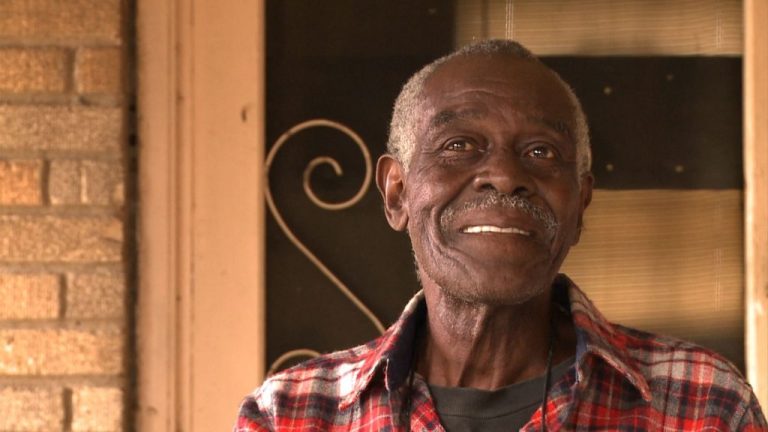
Margaret Galbraith had to overcome multiple challenges in the seven years it took to get her documentary “Stickman” to the screen. Funding was hard to come by, especially in the wake of the recession. She gave birth to two children. The subject of the film, Roosevelt Wilkerson, died.
But Galbraith completed her film and will screen it on March 16 as part of the Socially Relevant Film Festival in Manhattan.
“It was such a big struggle to get funding and everything, so it was a big milestone to finally show it,” she said of the film’s premiere in her native Dallas. “It was very rewarding.”
The film was the first time behind the camera for the Port Washington resident. The documentary focuses on Wilkerson, who started carving walking sticks as a homeless man in Dallas. His walking sticks catch the attention of several people in the local community, who help him with funding and distribution. Over time, Wilkerson’s sticks find their way to celebrities and world leaders, with one being given to Pope Benedict XVI by then-President George W. Bush.
“I loved telling the story and talking to people,” she said. “It was fun to film Roosevelt and his wife Dorothy. It was an adventure to tell their story.”
She met Wilkerson through Susan Nowlin, a Texas socialite who had become one of his benefactors. Galbraith had recently graduated from a documentary program at the New School in New York City and had previously worked in community development.
“I worked with people that don’t have their stories recognized,” she said. “And I think I was also interested because he makes this art and that was the pull for me.”
It took some time for Roosevelt to open up. Galbraith said that he was initially shy in front of the camera. So she talked to other people in his life — Nowlin, his wife Dorothy, and a local art enthusiast, Carol Brewer. When he did start talking in front of a camera, Galbraith initially found him a little hard to understand. But he was funny and charismatic, and she said he was the right “character” to carry the film.
Wilkerson died in December 2015.
“He was never able to see the finished film and that was heartbreaking for me,” Galbraith said.
Nonetheless, she carried on with the film, interviewing Wilkerson’s friends and supporters again after his death. She then began work on editing, which she said was one of her favorite parts of the process.
The film debuted in Dallas last summer. It won the Best Documentary Feature at the 2017 Frame4Frame Film Festival in Arlington, Texas, and Best Texas Film at the Lone Star Film Festival in Fort Worth, Texas.
She said she wanted the film to change the way people view the poor and homeless.
“One person saw the film and told me that it made them look at the homeless different,” Galbraith said. “They used to walk by and that changed after, that was something I was trying to do. I wanted to show the humanity of Roosevelt and other people in that position.”
The film will be shown at 9:30 p.m. at Cinema Village in Greenwich Village, its local premiere.
Galbraith will be shooting some short films about the projects coming out of the Youth Climate Summit hosted by Residents Forward in Port, of which she is a board member. But she said she was unsure when she would attempt another feature-length documentary.
“I have some ideas about projects but I don’t know yet,” she said. “I’ve become very involved politically as an activist but I don’t have a story yet.”






